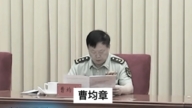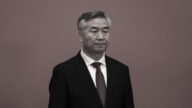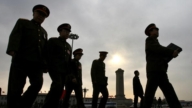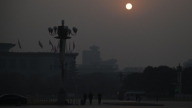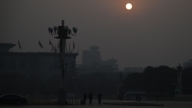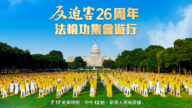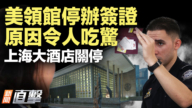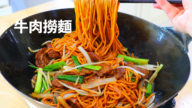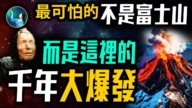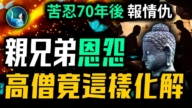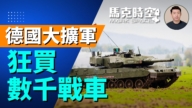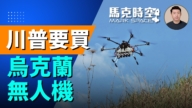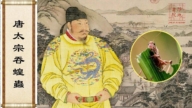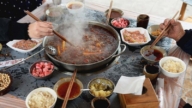【新唐人2012年7月20日讯】17、18号,《环球时报》连发两篇力挺“毛泽东思想的文章”,同时《新华网》等喉舌网站也在18号转载了一篇《人民日报》两个月以前的旧文,重提要以回归马克思主义毛泽东思想来坚持中国特色。评论人士认为,这一动向是中共高层“十八大”向左转的讯号。
人民日报集团的《环球时报》连发两篇颂毛文章。17号是北京航天大学教授张文木的《十八大后中国将向传统回归》,18号是从体制外回归于体制内的作家摩罗的《评价毛泽东,一些人有点过头了》。
张文木的文章认为,十八大将标志着中共向传统,即马列主义、毛泽东思想回归,并从中寻找力量。而摩罗的评论则批评说,近期对毛泽东的有些批判,的确是过头了。
网路作家荆楚指出,对于毛泽东这种一生不断制造事端,利用各种政治运动害死8千万中国人的“大魔头”,应该彻底清算。
荆楚:“毛泽东丧尽天良,祸国殃民,伤天害理…给中国人民只是带来了苦难,带来了血泪,怎么过头了?应该把毛泽东拖出来鞭尸,挫骨扬灰才应了他的历史地位。”
北京知名作家铁流也指出,毛泽东是中国最大的一个动乱因素。他们这些经历了毛时代,还活在世上的人,就是毛泽东罪恶的见证。
摩罗还在文章中称,毛泽东那一代人把中国从那群帝国主义魔爪中解救出来,由此中国才结束长达百余年的失败与沉沦。因此毛泽东作为大战略家,有指引和统率的功劳。
前“山东大学”历史教授刘因全指出,这是共产党一贯使用的颠倒黑白、歪曲历史的谎言。他说,实际上当时美国一直支持维护中国领土完整。反而是毛泽东和苏联互相利用,推翻了当时的中国合法政府,中共窃政后,不仅没有提升中国的国际地位,还丢失了许多主权。
刘因全:“特别是美国,提出了维护中国的主权和领土完整,也就是所谓的门户开放政策。这是美国提出来的,美国一直是维护中国的领土完整和主权的,美国反对瓜分中国,反对占领中国的领土,这是历史事实嘛。中国共产党政权还割让了大量的领土给其他国家,你像给缅甸,给印度,给越南,这都是卖国行为的。这些在国民党政府没有做,在以前的北洋政府也没有做,他们都没有做这些卖国的事情,也就是说从这个方面看毛泽东他出卖了国家利益,造成了中国的国际地位低下。”
除了《环球时报》之外,《新华网》等其他喉舌媒体网站也在18号不约而同的刊发一篇“挺毛”的旧文。
这篇《人民日报》5月9号的文章,两个月后标题改成“人民日报刊登署名文章谈中国特色社会主义道路”重新出现。文章的核心是:要以回归“马克思主义”,“毛泽东思想”,来坚持中国特色。文中“马克思主义”一词出现6次,“毛泽东”出现6次,而“邓小平”才3次,明显和近三十年来,官文中“邓小平”出现频率高于“马克思”,“毛泽东”的宣传口径相反。
有评论认为,《新华社》在北戴河会议前再次刊登两月前的旧文,很可能是中共高层中回归毛泽东的意见占了上峰,所以让向全党发出向左转信号。
刘因全指出,如果再回归到毛时代,社会将大倒退,中国会进一步陷入专制独裁。而如果“十八大”向左转,中共有可能走向法西斯的道路,狭隘的民主主义道路,中共将会加速灭亡。
十八大召开之前,中共党内内斗空前激烈,各派纷纷通过媒体放风,制造舆论。因此喉舌媒体也不时出现色彩不一致的文章。
采访编辑/李韵 后制/朱娣
Mouthpiece Article Signals CCP’s Leftist Turn at 18th Assembly
On July 17 and 18, the Global Times published two articles
promoting “Maoist thoughts.”
On July 18, Xinhua News Agency and other CCP mouthpiece
websites reproduced an article published in People’s Daily two months ago, calling for returning to Maoism.
Critics believe that this signal’s CCP’s leftist turn upon
its 18th national assembly.
On July 17, Global Times newspaper, member in the People’s
Daily Group, published an article titled,
“China’s Return to Tradition after 18th Assembly” by
Zhang Wenmu, professor at Beijing Aerospace University.
On July 18, it published another article by writer Mo Luo
titled, “Some Have Gone Too Far in Evaluating Mao Zedong.”
Mo Luo came to cooperate with the authorities after being
an independent writer.
Zhang’s articles said CCP’s 18th National Assembly marks
a return to its tradition of Marxism-Leninism and Maoist belief.
Mo Luo commented that recent criticism over Mao Zedong
has indeed gone too far.
Internet writer Jing Chu pointed out that Mao Zedong waged
disturbances throughout his life, killing 80 million Chinese people in successive political movements.
The crimes of this “great Satan” need to be publicly judged.
Jing Chu: “Mao Zedong completely lost his conscience.
He caused severe disasters to China and its people,
bringing nothing but tears and blood.
His body deserves to be dragged out and smashed.
Only that can be a fair retribution for what he did in history.”
Well-known Beijing writer, Tie Liu, also said, “Mao Zedong
was the foremost factor for China’s turmoil.
Those who lived through the Mao era witnessed Mao’s crimes.”
Mo Luo said in his article, Mao and his comrades saved China
from the clutches of imperialism, putting an end to 100 years of decadence.
As a great strategist, Mao Zedong thus should be credited
for his guidance and command.
Liu Yinquan, former history professor at Shandong University,
said Mo Luo’s words show CCP’s usual trick of distorting history.
He pointed out that the United States actually supported
China’s territorial integrity.
Instead, Mao Zedong and the Soviet Union collaborated
to overthrow the official government of China.
After the CCP took power, they not only failed to improve
China’s international status, but also lost a lot of sovereignty.
Liu Yinquan: “United States particularly proposed to safeguard
China’s sovereignty and territorial integrity, that is, the so-called open-door policy.
The United States was opposed to occupying China’s territory,
or sharing privileges in China among foreign countries.
The CCP regime ceded a lot of territories to other countries
such as Myanmar, India, and Vietnam.
These are sheer traitorous behaviors.
These traitorous behaviors had never been done by
any previous regimes in Chinese history, except this Communist Regime.
Mao Zedong betrayed China’s national interests,
resulting in China’s underprivileged status in the world.”
In addition to the Global Times, Xinhua Agency and other
mouthpiece media also published an article on the 18th in support of Maoism.
This article was originally published in People’s Daily
on May 9.
It now reappeared with the new title, “People’s Daily Published
Authored Article on Socialism with Chinese Characteristics.”
The article calls for a return to Marxism and Maoism
to maintain “Chinese Characteristics.”
“Marxism” and “Mao Zedong” each appeared six times
in the article, yet “Deng Xiaoping" only three times.
This contradicts the usual situation of the past 30 years,
where “Deng Xiaoping” appeared more frequently than “Marx” or “Mao Zedong” in official articles.
Some commentators believe that Xinhua News Agency
reproduced this old article before CCP’s Beidaihe meeting
probably because among its leaders the opinion of returning
to Maoism prevailed.
This article thus sent a signal about the Party’s left turn.
Liu Yinquan pointed out that a return to the Mao era would
incur great social retrogression, pulling China further into dictatorship.
If CCP turns further left at its 18th Assembly, it will probably
follow the path of Fascism and a narrow nationalism, which will only accelerate CCP’s demise.
CCP saw fierce fights among its factions before 18th Assembly.
All factions tried to manipulate the media to release their own
messages, resulting in inconsistencies even in mouthpiece media.


